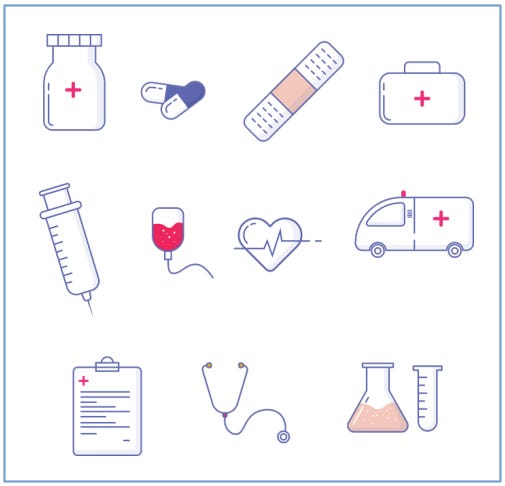If we are to make progress on the social and health sides of the sustainability transitions, we really need to focus on the holistic side of our healthcare system, helping us live healthier and more productive lives, rather than just treating us when we are ill.
A broader focus on overall wellbeing has been core to health care practices in a number of countries in the east for centuries, however, that approach/mindset has become more mainstream globally too.
The complementary and alternative medicine market was estimated to be US$117 billion in 2022 rising 5x by 2030. But that is really just talking about 'provided services' - those classically associated treatments.
What we really need to understand is our overall approach - how we think about health / well-being.
The dominant approach in the west is an allopathic approach focusing on treating specific symptoms or illnesses; in many eastern countries the approach is holistic treating the whole person rather than just their illness or symptoms.
One example of a treatment area that is both an increasing problem and one that seems to be crying out for a broader approach is mental health. This has historically been allopathic in nature. A person suffers from a condition like depression or anxiety and receives treatment for the symptoms of that condition. And yet, as the recent WHO report highlighted, this approach is failing many patients - who often do not even make it into the ‘treatment’ phase.
What do we mean by holistic?
For example, in recent years our understanding of the importance of gut flora and the gut-brain axis to overall wellbeing has increased dramatically. 'Gut: the inside story of our body’s most underrated organ' by is a comprehensive introduction. If you click on the image below, that takes you to some of her TED talks.
Sleep is another area that has been the focus of an increasing amount of academic / clinical work. There's a budding supplements industry aimed at improving overall quality of sleep to boost wellbeing. Numerous studies have made the link between insufficient high-quality sleep and obesity, diabetes, cardiovascular disease and immune function.
Shifting from treatment to prevention
The whole approach to health and well-being could move from one focused on treatment to prevention; from allopathic (focus on specific ailments) to holistic. If we do start living longer, and in better health, there will be knock-on effects to society, family, education and productivity. Plus, the financial payback to society looks really compelling.






